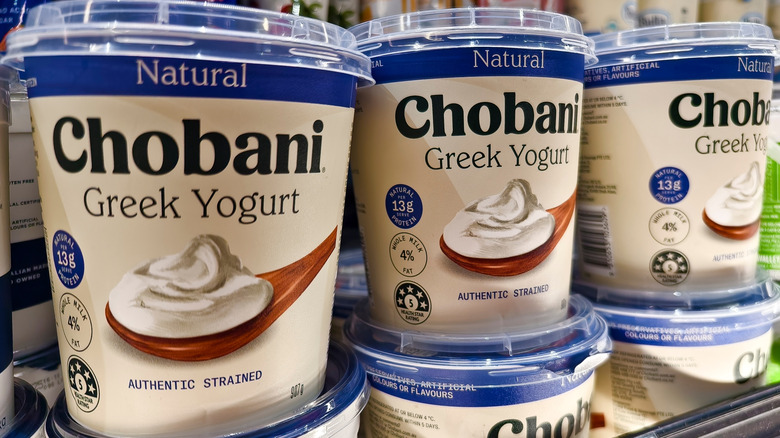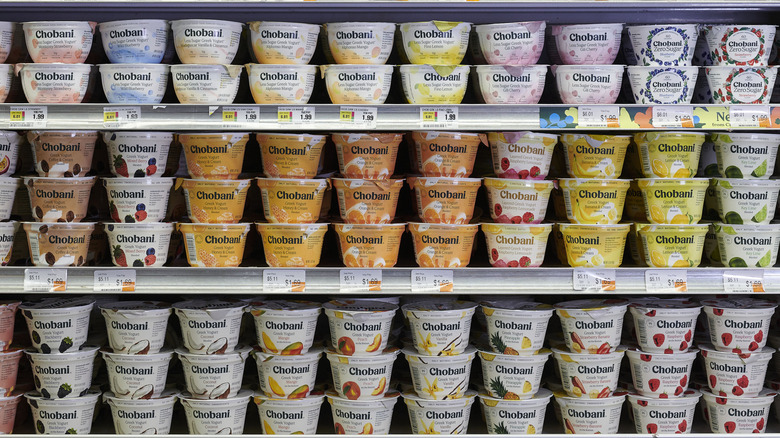The Greek Yogurt In The Grocery Store Isn't As Greek As We Thought
Confusion and intrigue surround the modern American food supply. There are tons of products sitting on shelves which claim to be something they aren't. It's the kind of situation that has people researching how to tell real scallops from fake ones and questioning if imitation calamari is actually made from pig rectums. There are other foods whose crimes aren't quite so big as food fraud, but whose marketing is still somewhat misleading.
Take Greek yogurt, for example. Although the fervor has died down somewhat, there were a few years there where it was being hailed as the dairy industry's saving grace. To be fair, the thick yogurt does have more protein than regular yogurt and contains gut-healthy probiotics, which are all good things. But if you travel to Greece, you aren't likely to see the same kind of product that sits on American shelves.
In reality, Greek yogurt is a purely marketing term. There's no legal definition behind it and no direct connection with the eponymous culture. A particular type of strained yogurt popular in both Greece and Turkey was used as inspiration for American-style Greek yogurt's creation, but that's about the extent of it. This Mediterranean influence makes Greek yogurt different from Skyr and other European-style yogurts, but ties them into a similar family of foods.
Why does the name of a product matter?
These subtle deceptions in the American consumer market are simultaneously cause for concern and not really that big of a deal. If dairy companies had decided to name Greek yogurt something like moon yogurt instead, nobody would bat an eye. It isn't really the fact that the name is imprecise that's the problem, it's more that it suggests something that's real or plausible without being factually true.
A somewhat similar marketing dilemma was the whole superfood craze. What is a superfood, really? It suggests an ingredient that's more nutritious than other ingredients, but there's no legal or normative bar held up as a standard. Toward the end of that food fad, it seemed like anything even remotely outside of the typical American diet was being labeled a superfood. So perhaps the real detriment to these marketing white lies is that they open the door for subpar ingredients passing as something of higher quality.
This appears to be the case for Greek yogurt, where more and more companies appear willing to cut corners by using cheaper ingredients. The so-called 'true' producers of Greek yogurt bemoan the loss in quality, but even this is a performative play to entice consumers toward their product despite many of them resorting to shrinkflation for similar reasons.

